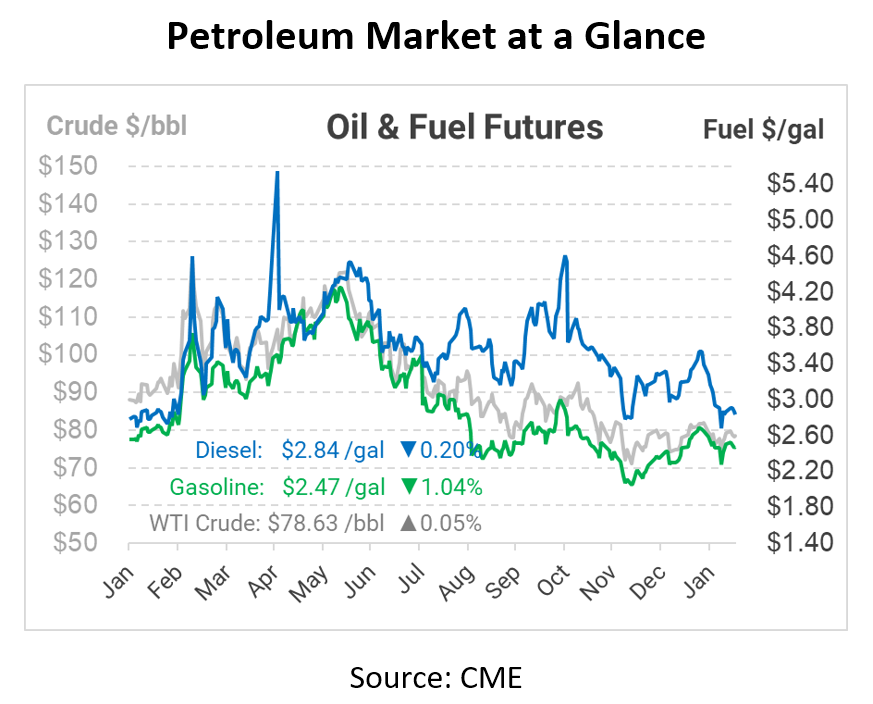
Bulk Tank – 4 Things to Consider Before Installing
Having a bulk fuel storage tank on-site comes with many advantages for companies with large fleets or heavy fuel utilization. One of the biggest advantages is the price break with purchasing fuel in bulk and not having to wait on delivery services. Knowing how much fuel you have on hand allows you to focus your attention on other tasks.
As with anything, there are downsides that come with the advantages. There are many laws and regulations at the local, state, and federal levels that come with maintaining your own bulk tank. If your business is considering installing a bulk tank on your property, keep the following four considerations in mind before taking the leap.
Optimal Space for Installation
First and foremost, you will need to assess whether you have ample space for tank installation. Tanks should be placed in areas that are open and free of hazards that could prevent delivery drivers from re-filling the tank. Ideally, trucks should not have to make tight turns or back up to these areas. Placing bulk tanks in an area away from heavy traffic is also important. You do not want to cause any unnecessary risks to the site or the people who will be accessing it. Flat ground is another important consideration because spills or leaks will run toward water, ditches, or drains if the tank is not sitting level.
Positive Return on Investment
The concept of having fuel on-site and saving time by cutting out trips to retail gas stations is usually reason enough for consumers to make the switch to a bulk fuel storage tank. To put it into perspective, there is an average cost savings of 30-50c/gal with bulk fuel procurement. In addition, the time savings that drivers are gaining back in their schedule will allow for increased productivity. There are also cost savings associated with being able to track your fuel consumption more easily. By having a clear idea of how much fuel is being used, you can better plan for future purchases and make adjustments as needed.
Zoning and Environmental Impacts
Fuel is a dangerous substance that can cause a lot of damage if it isn’t handled properly. One of the biggest concerns with installing a fuel tank on your property is zoning laws and environmental regulations. Depending on where you live, there may be restrictions on where you can place a tank and how big it can be. If you are considering installation in a residential area, you should also consider the impact it might have on neighbors in the community.
Operational Capacity
When deciding to install a fuel tank, the fourth thing to consider is your operational capacity. Do you have the overhead needed to maintain the onsite tank? Do you have the space to store the tank and its associated equipment? If these questions can be answered with an affirmative, then it’s time to talk logistics.
____
Once you begin dispensing your own fuel, you must maintain it with frequent checks for water and contamination. Fuel quality must be understood and managed, and preventive measures should be taken to prevent corrosion, gelling, and plugging with year-round or winter treatments. In addition, you can work with your fuel supplier to keep deliveries clean, although you are ultimately responsible for its quality. Mansfield offers a complete lineup of fueling system design, installation, and maintenance services. If you have been contemplating fuel tank installation, give our experts a call and let them help you find a solution right for you and your business.
This article is part of Daily Market News & Insights
MARKET CONDITION REPORT - DISCLAIMER
The information contained herein is derived from sources believed to be reliable; however, this information is not guaranteed as to its accuracy or completeness. Furthermore, no responsibility is assumed for use of this material and no express or implied warranties or guarantees are made. This material and any view or comment expressed herein are provided for informational purposes only and should not be construed in any way as an inducement or recommendation to buy or sell products, commodity futures or options contracts.






